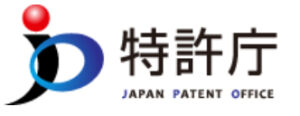Article 104-3 of the Patent Law
2. If it is found that the method of attack or defense pursuant to the provisions of the preceding paragraph has been submitted for the purpose of unreasonably delaying the trial, the court shall make a decision to dismiss it by petition or ex officio. Can be done.
3. The provisions of Article 123, paragraph 2 require that a person other than a person who can request a patent invalidation trial for the invention pertaining to the patent submit a method of attack or defense pursuant to the provisions of paragraph 1. Do not interfere.
Defense of reasons for invalidation (defense of abuse of rights)
If it is clear that the patent has a reason for invalidation, the Supreme Court has ruled that the exercise of the right under this patent is an abuse of rights and is not permitted unless there are special circumstances (Kilby). Case: Supreme Court 12.4.11).
Following the judgment of the Supreme Court, the Patent Law was amended in 2004, and Article 104-3 of the Patent Law mentioned above was added.
In the past, in patent infringement proceedings, the defendant could not claim the invalidity of the patent right (defense of the reason for invalidation), and had to file a trial for invalidation with the Patent Office and invalidate the plaintiff's patent right.
Article 104-3 of the Patent Act 1. In a proceeding regarding infringement of a patent right or exclusive license, the patent should be invalidated by a trial for invalidation of the patent or the registration for extension of the term of the patent right should be invalidated by a trial for invalidation of extension registration. When it is recognized as a thing
The court also determines whether the plaintiff's patent right is invalid, and if it is clear that the plaintiff's patent right is invalid, dismisses the plaintiff's request without waiting for the invalidation trial decision of the Patent Office. It is now possible.
Judgment in the Kilby case
In the Patent Law, if there is a reason for invalidation of a patent, it shall be invalidated by the trial of a judge of the Japan Patent Office who has specialized knowledge and experience (Article 123, Paragraph 1, 17 of the same law). (Article 8 (6)), it is assumed that the patent right did not exist from the beginning due to the finalization of the invalidation trial decision (Article 125 of the same law).
Therefore, the patent right lasts legally and effectively until the invalidation trial decision is finalized, and is not invalidated in the world.
However, as in the case of this patent, when it is clear that there is a reason for invalidation in the patent, and when a request for trial for invalidation is filed, it is certain that the patent will be invalidated by the finalization of the trial decision for invalidation. However, it is not appropriate to understand that a claim for injunction, compensation for damages, etc. based on the patent right is permitted in view of the following points.
(1) Allowing an injunction against the practice of the invention based on such a patent right and claiming damages for the invention gives the patentee an unfair advantage in substance. Right It gives an unreasonable disadvantage to the person who implements the invention, and the result is contrary to the idea of equity.
(2) It is desirable to resolve a dispute in one procedure in the shortest possible time. In an infringement proceeding based on a patent right as shown on the right, the invalidation trial decision is first finalized via the invalidation trial at the JPO. Otherwise, the fact that the existence of a reason for invalidation of the patent is not allowed as a defense against the exercise of the patent right means that the parties who are not willing to seek the invalidation of the patent in the world will be tried for invalidation. It will force the procedure and also go against the litigation economy.
(3) Article 168, Paragraph 2 of the Patent Act states that the proceedings should be suspended until it is clear that the patent has a reason for invalidation and it is certain that it will be invalidated as described above. Cannot be understood as stipulating.
Therefore, it should be understood that even before the patent invalidation decision is finalized, the court hearing the patent infringement lawsuit can determine whether it is clear that the patent has a reason for invalidation. If, as a result of the trial, it is clear that the patent has a reason for invalidation, a claim for injunction, damages, etc. based on the patent right must be permitted for abuse of the right unless there are special circumstances. It is reasonable to understand. Even if this is understood, it cannot be said that it goes against the purpose of the patent system.
Based on the above, it is clear that there is a reason for invalidation in the Patent, and it is not enough to admit any special circumstances such as a request for a correction trial. Therefore, the claim for damages based on the Patent Right is the right. The court's decision that the respondent's claim should be accepted as unacceptable for abuse can be justified. The right judgment does not conflict with the case of quoting the argument, and the original judgment is not illegal. The argument is merely to condemn the judgment of the disposition of evidence belonging to the exclusive authority of the trial court, the finding of facts, or to argue the original judgment from its own point of view, and cannot be adopted.










